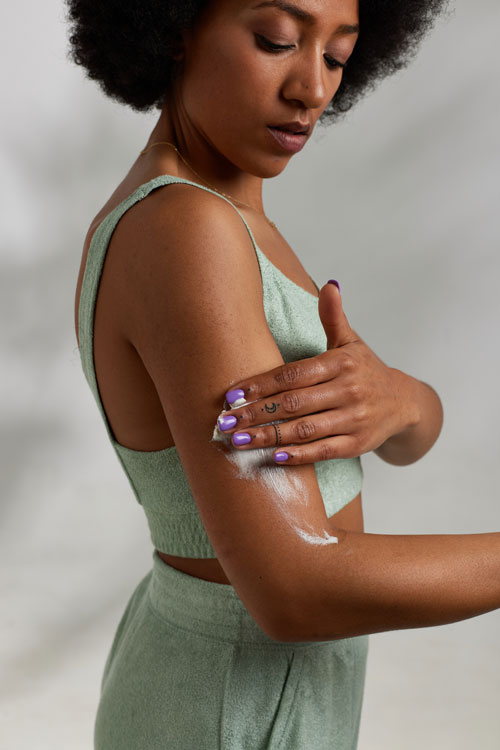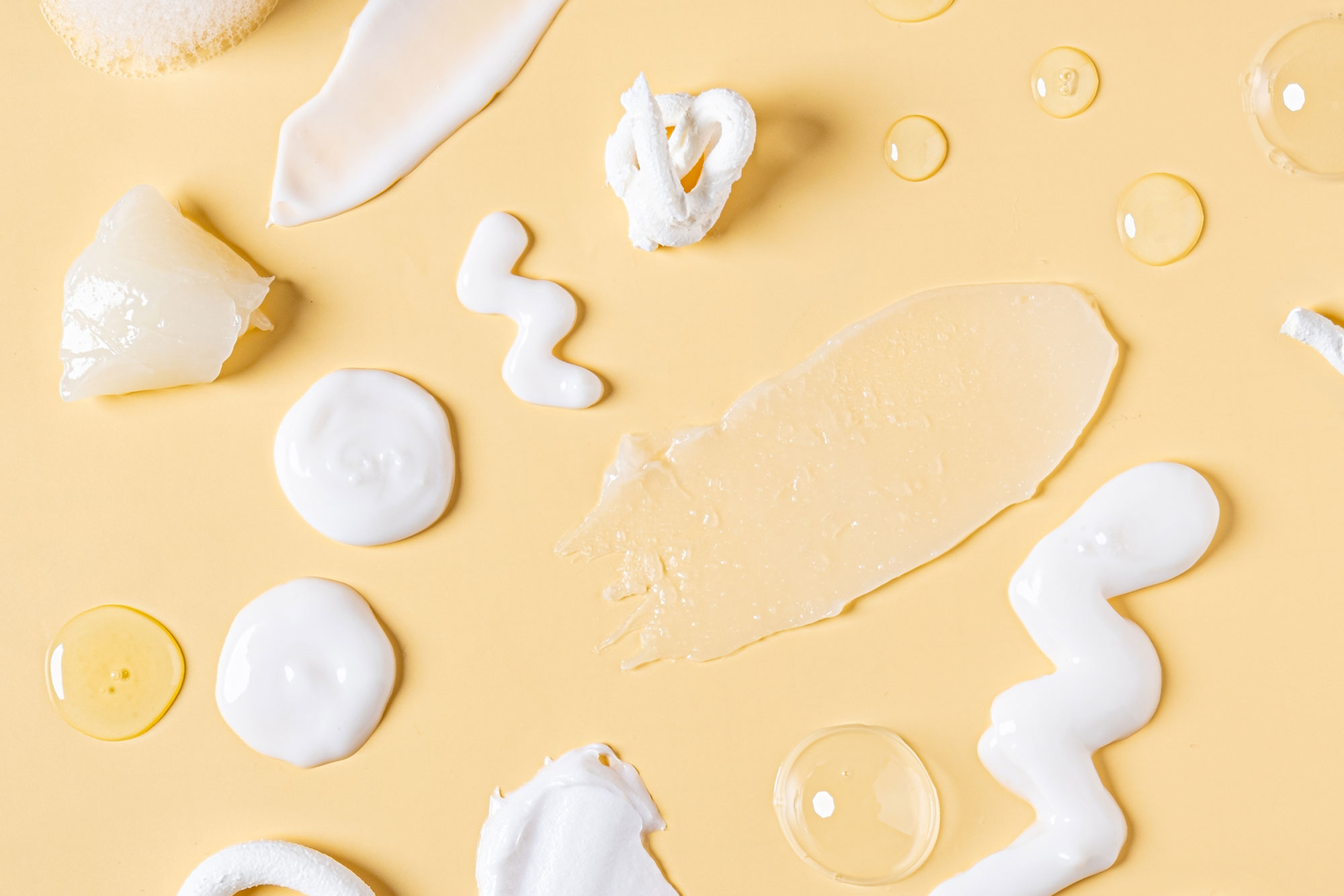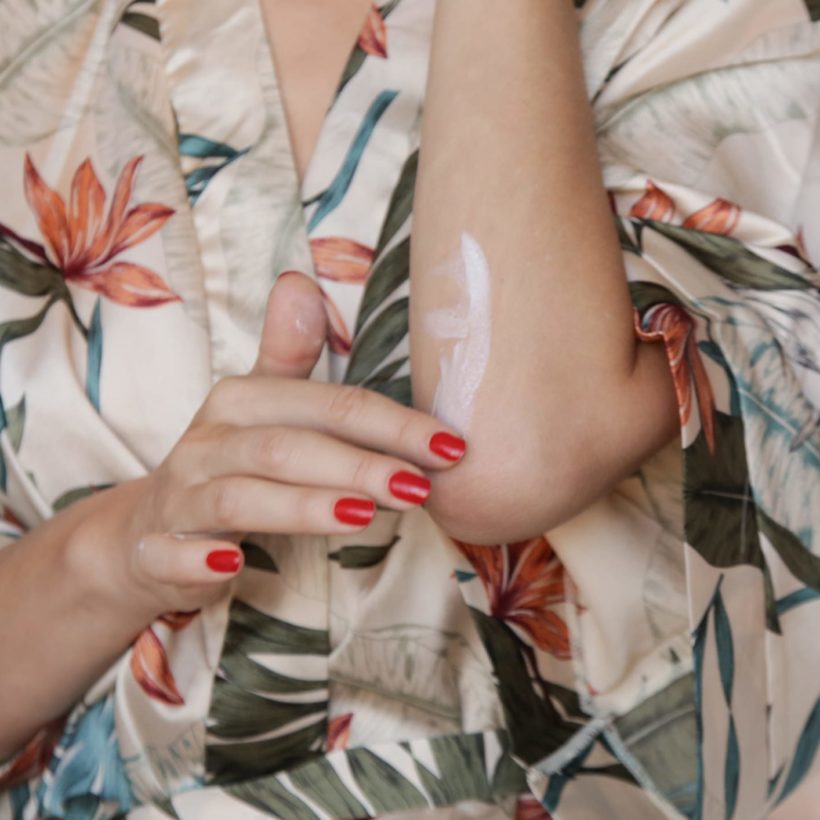More than 10 percent of the U.S. population experience eczema, and 125 million worldwide have psoriasis. You don’t have to be a statistician to realize that the chances are pretty high that you and someone you know might have one of these conditions.
While both psoriasis and eczema are inflammatory skin conditions that cause raised, red patches of skin that can be itchy, they are quite different at their root. Psoriasis is a more intense inflammatory skin condition that is often more chronic and lifelong, whereas eczema can come and go, per the American Academy of Dermatology Association (AAD). What’s more: Jeffrey Hsu, M.D., Chicago-based dermatologist and founder of Oak Dermatology, notes that the biological basis of these conditions is very different, with very different consequences. “For example, psoriasis can be associated with other serious conditions, like arthritis, heart disease, and diabetes,” he says.

There are plenty of reasons why they are often confused for one another — even by practitioners on occasion. They manifest on various body parts, and both involve genetic and environmental factors that can trigger or aggravate the condition. “No specific cause has been identified, but there are many supposed lifestyle and environmental triggers, including allergens like pollen, mold and dust mites, animals, cold and dry air, the skin contact with irritating chemicals or rough materials such as wool, and emotional factors such as stress,” says Michele Koo, M.D., aesthetic plastic surgeon.
When it comes to your skincare routine when dealing with psoriasis and eczema, they are also both exacerbated by many of the same triggers. So, luckily if your psoriasis is confused for eczema or vice versa, the treatment often looks similar. Here, dermatologists share their best tips for creating a skincare routine to help alleviate your psoriasis or eczema.
Avoid hot showers
Even though it might feel relaxing to take a hot shower, it’s best to keep the temperature lukewarm, not hot, especially if you’re suffering from eczema or psoriasis. “Overexposing the skin to these high temperatures will further dry out the skin and aggravate the condition,” warns Dr. Koo. Try to keep your showers and baths to a temperature peak of 98.6F, which is the average body temperature, as suggested by the Baylor College of Medicine.

Always apply moisturizer after your showers
The best time to apply moisturizer is when your skin is still damp from the shower. This is because your skin is still wet, and your pores are more open directly after a shower to lock in the moisture best at this time. Keeping the skin moisturized will also help reduce the itch that accompanies both conditions, notes Elizabeth Mullans, M.D., a dermatologist at Uptown Dermatology in Minneapolis. When selecting a moisturizer, she recommends always choosing a product designed for dry skin, ensuring it’s fragrance-free, hypoallergenic, and formulated without dyes.
Use hypoallergenic detergent
You might not consider your laundry a part of your skincare routine, but how and what you use to wash your clothing can make a difference when it comes to skin health, notes Dr. Mullans. “An easy way to reduce eczema flare-ups and dry skin irritation is to wash all clothes, linens, and masks with a hypoallergenic, fragrance-free detergent such as Arm & Hammer Sensitive Skin, Free & Clear Detergent, which is specifically formulated for sensitive skin and dermatologist-tested to help avoid skin irritation and itchiness,” she says.
Don’t pick, scratch, or rub the skin
As tempting as it might be to want to itch, rub or pick at your skin, it will only irritate and worsen the spots, warns Sejal Shah, M.D., dermatologist and founder of SmarterSkin Dermatology. It can also cause bleeding and increase the risk of a secondary skin infection. Despite the urge to scratch the itch, trauma to the skin can exacerbate these conditions and lead to skin infections.
Look for ingredients that will support the skin barrier
Skin barrier-boosting products containing ceramides, niacinamide, or vitamin B3, help improve skin tone and texture, notes Dr. Shah. “Another beneficial ingredient is hypochlorous acid (HOCL), which has antimicrobial, anti-inflammatory, and reparative properties to help soothe and repair skin affected by chronic inflammatory conditions like eczema and psoriasis,” she says.
Keep things simple
“I always tell patients to avoid irritants in their soaps and lotions, such as fragrances and essential oils, which can exacerbate symptoms of both psoriasis and eczema,” warns Dr. Hsu. In addition, check soaps and shampoo for Cocamidopropyl betaine, a derivative of coconut oil that may cause redness, flaking, and itching on affected areas,” he says. He recommends opting for gentle cleansers and moisturizers to stabilize the skin’s pH.

Stay in touch with your dermatologist
While most cases of eczema and psoriasis can be managed well at home, Beverly Hills-based dermatologist Salar Hazany, M.D., of The Scar Healing Institute, recommends that patients with more severe psoriasis and eczema should see a board-certified dermatologist to get treated with more aggressive treatments, including topical, oral, injectable or ultraviolet light, all of which require a prescription.
We only recommend products we have independently researched, tested, and loved. If you purchase a product found through our links, Sunday Edit may earn an affiliate commission.







